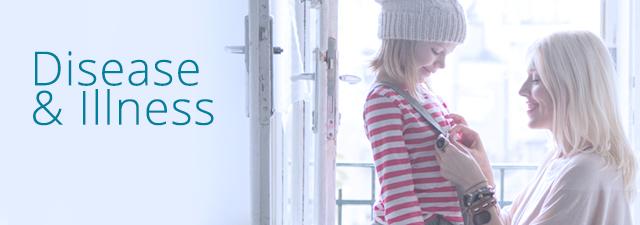Algoma Public Health
West Nile Virus
What is it?
West Nile virus infection is caused by the West Nile virus (WNv). This virus is spread to humans through the bite of an infected mosquito. It can cause fever, headache and muscle aches usually lasting a week or less. Rash and swollen glands are common. Occasionally (less than 1% of cases) it causes encephalitis (swelling of the brain) or meningitis (swelling of the lining of the brain and spinal cord). The virus is named after the West Nile region of Uganda, where it was first isolated in 1937. Outbreaks have occurred in many areas around the world. The virus has been identified in birds, mosquitoes, horses and humans in Ontario since the summer of 2001.
How is it spread?
WNv is spread to humans through the bite of an infected mosquito. A mosquito becomes infected by biting a bird that carries the virus. WNv is mostly a disease of birds, but can spread to humans by mosquitoes that have fed on both birds and humans. The virus is not known to spread from person-to-person, nor from bird-to person. There have been rare cases from blood/organ transmission and transmission from pregnant mothers to their newborn child. Breast feeding may also spread the infection although this has not been confirmed.
Related Documents
Contact Us!
Sault Ste. Marie: 705-942-4646
Blind River: 705-356-2551
Elliot Lake: 705-848-2314
Wawa: 705-856-7208
Can I get sick from WNv?
Most people who become infected with WNv do not develop symptoms or have very mild symptoms. Symptoms appear 3 to 15 days following the bite of an infected mosquito and can range from a mild fever, headache and mild flu-like illness, to rapid onset of severe headache, high fever, stiff neck, muscle weakness, or disorientation. Severe symptoms are more likely to occur in the elderly, the very young and those with suppressed immune systems. In rare cases, it can result in death; however, most people recover fully.
How is it treated?
If you are bitten by a mosquito, no treatment or tests are needed unless symptoms develop. There is no specific treatment or vaccine for WNv. Some people with severe illness may require hospitalization. Most people who are infected with West Nile virus recover fully.
Once infected, does a natural immunity to WNV develop?
Studies indicate that following infection, antibodies and “memory” white blood cells (T-lymphocytes) are produced in the body. Therefore it is assumed that immunity will be lifelong, however, it may diminish in later years.
How can I protect myself?
Mosquitoes are most active from May through September and from dusk to dawn. To protect yourself from mosquito bites, the following personal precautions should be taken:
- Limit your time outdoors when mosquitoes are most active (from May to September, from dusk to dawn).
- If you must be outside when mosquitoes are active, wear protective clothing such as long pants, long sleeves, shoes and socks.
- Wear light-coloured clothing. Mosquitoes are attracted to dark, more intense colours.
- Use an insect repellent on exposed skin when outside in places and at times when mosquitoes are most active.
NOTE: Vitamin B, ultrasonic devices, incense, citronella plants and bug zappers have NOT been shown to be effective in preventing mosquito bites.
What can I do around my home?
The most common mosquito species associated with WNv is the Culex species, most often an urban-dwelling, container-breeding mosquito. Culex mosquitoes have a limited flight range, and as a result, adult mosquitoes are usually found close to their breeding site.
Female mosquitoes tend to lay their eggs in or around water that is stagnant, shallow and high in organic matter. Eliminating potential breeding sites is the primary control measure in reducing mosquito populations. The following are simple steps that can be taken to eliminate potential breeding sites in and around your home and prevent you from getting a mosquito bite:
- Remove unused objects, garbage or refuse that could collect stagnant water (tires, flowerpots, etc.).
- When not in use, turn over items such as wading pools, recycling boxes, wheelbarrows and boats/canoes.
- Clean and chlorinate swimming pools, outdoor saunas and hot tubs. Cover if not in use.
- Weekly draining of water that collects on pool covers, window boxes, flower pots, etc.
- Weekly changing of water in wading pools, bird baths and pet food/water dishes.
- Aerate ornamental ponds, or stock self-contained ponds with mosquito-eating fish (gold fish, koi, etc.).
- Cover rainwater barrels with a fine mesh or screen.
- Do not wash grass clippings or leaves down roadside catch basins.
- Turn compost over on a regular basis.
- Do regular landscape maintenance of weeds, tall grasses and shrubs.
- Regular maintenance of roof gutters to prevent clogging.
- Ensure that doors and windows have tight fitting screens and are in good repair.
- Remind or help neighbours to eliminate mosquito breeding sites on their property.
Date of Creation: June 1, 2015
Last Modified: June 1, 2015










